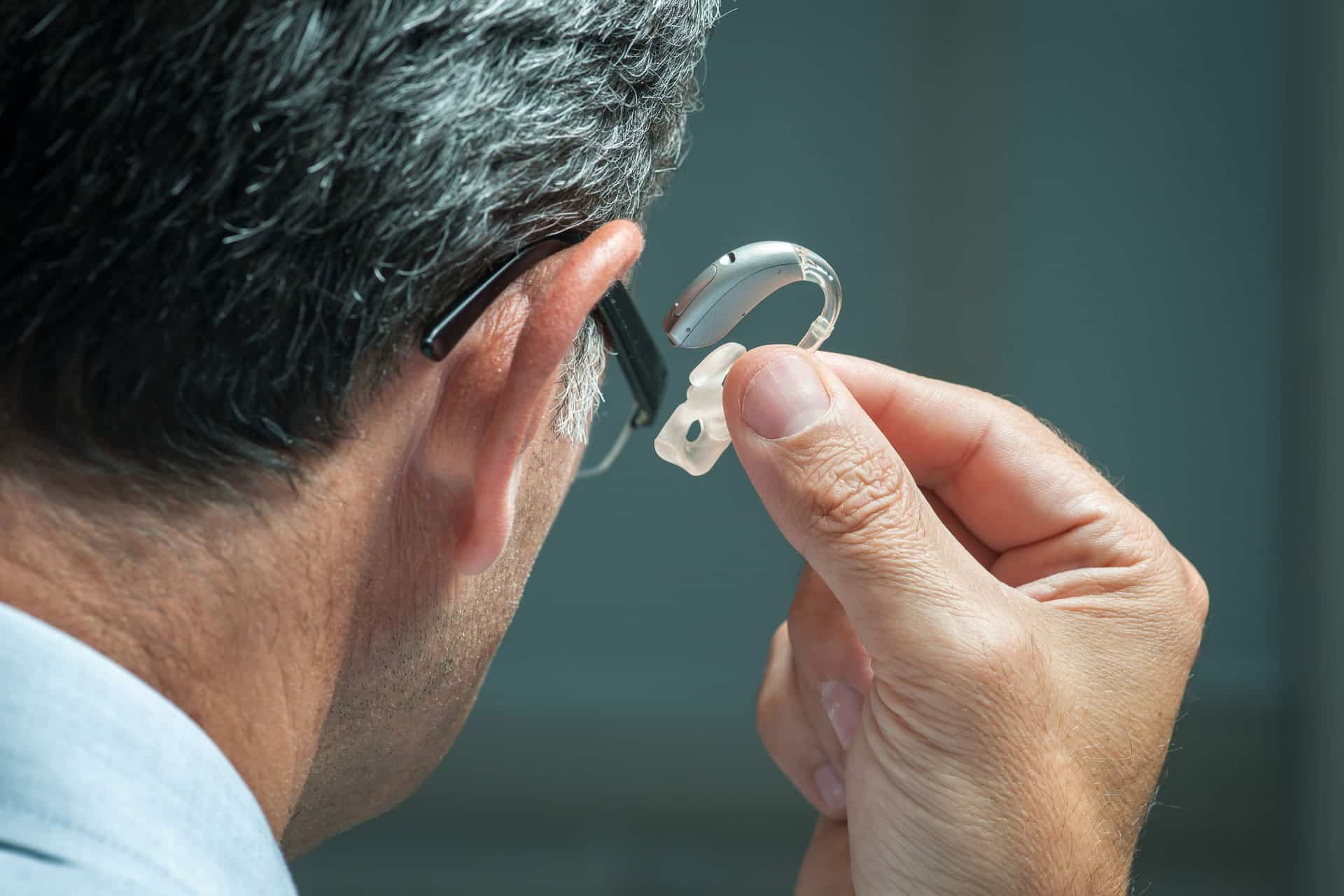Delivery in 2-3 working days
Hearing problems with background noise
Hearing problems are widespread. Both the causes and the severity can vary greatly - from difficulties understanding certain sound frequencies or volumes to hearing loss or deafness.
Many people also have hearing problems with background noise, which means that they find it difficult to understand conversations or what is being said when loud noises can be heard in the background.
Read on to find out what the causes are, what treatment options there are and what technical aids are available.
What are hearing problems?
Generally speaking, people with hearing problems have difficulty hearing. These difficulties can vary from person to person and range from problems understanding soft sounds, speech or other acoustic signals to the inability to tolerate loud noises. Ringing in the ears, such as tinnitus, is also a common hearing problem. Hearing problems can take various forms, from temporary hearing impairment to chronic conditions such as hearing loss or deafness.
What is background noise?
Background noises are noises that are present in the background in a certain environment for a certain period of time. They are therefore not the immediate focus of attention. These can be sounds that many people perceive as pleasant, such as the sound of the sea, wind or birdsong, as well as disturbing noises such as construction noise, traffic noise, electrical appliances or music. Conversations in which you are not personally involved can also be background noise.
These background noises can increase the ambient volume, making it difficult to hear other sounds or conversations. The difficulty of understanding speech in a noisy environment and filtering out the relevant information, for example when different sounds and voices occur simultaneously, is also known as the "cocktail party effect".
Causes of hearing problems with background noise
The causes of hearing problems with background noise or hearing loss in general can be very different.
They are particularly common as a result of age-related hearing loss. Diseases such as ear infections or disorders such as damage to the hair cells in the inner ear also frequently lead to hearing problems. Another reason for hearing impairment is genetic predisposition. In addition, accidents or injuries, especially those that affect the ear, can lead to hearing loss.
Specific causes of hearing problems with background noise include difficulties with sound filtering in the brain or attention deficits. For example, some people cannot concentrate well on a specific sound source or separate background noise from relevant sounds or voices when many different sounds occur simultaneously. Neurological disorders can also impair hearing ability.
In any case, it is advisable to consult an ENT specialist or audiologist at an early stage if you have hearing problems. They can carry out a thorough examination and determine whether the problem is temporary or chronic and, if necessary, recommend individual treatment options or hearing aids.
Hearing problems with background noise in everyday life
Hearing problems with background noise can have various consequences for those affected in everyday life. These include
- Difficulty understanding conversations in noisy environments, for example in cafés or restaurants. This can mean that meetings or group activities are less or no longer attended. The result is social isolation.
- Strain and tension: Understanding speech in noisy environments can be very tiring for those affected and can lead to stress and a reduced quality of life.
- Increased risk of accidents: The lack of acoustic perception can also increase the risk of accidents in everyday life if possible warning signals can no longer be heard in background noise.
- Problems at work: Hearing loss can also cause problems at work, for example with communication, and thus lead to a deterioration in work performance.
Background noise when watching TV
It is particularly noticeable when watching TV if you suddenly can no longer understand everything. If the background noise on TV is too loud, for example the music or sound effects, dialog or speech often becomes incomprehensible. As a result, important information is lost and the viewing experience is spoiled. The reaction to this problem is often to turn up the volume, which in turn can quickly become annoying for other people in the house.
What can you do?
First of all, it is important to find out the cause of the hearing loss. To do this, you should always consult a doctor or hearing care professional. Early diagnosis and treatment can help to minimize the consequences of hearing problems.
Tips for dealing with hearing problems caused by background noise
- Use hearing aids such as hearing aids and cochlear implants. These special hearing aids can improve hearing performance and enable better communication, even in noisy environments. You can obtain information from your doctor or audiologist.
- Special hearing aids with a noise-canceling function can help to reduce background noise.
- If the background noise is too loud when watching TV, various settings and technical aids are recommended. These include sound tracks such as "Clear speech" or TV sound amplifiers such as the OSKAR from faller audio, which uses special dialogue optimization to filter out distracting background noise.
- Audio therapies can help to improve speech processing and comprehension in noisy environments. Here too, a prior diagnosis by a doctor is advisable in order to find the right treatment.
- In excessively loud environments, hearing protection can reduce background noise. If necessary, move to quieter areas.
- Train your awareness of visual cues: Observing mouth movements, facial expressions and gestures can help to support understanding when the background noise is too loud.
- Inform the person you are talking to about your hearing loss. Clear communication and a willingness to adapt to the needs of people with hearing problems are important when communicating with people with hearing loss.
- Seek advice from a doctor or hearing care professional.
Our online hearing test
For a first impression of your hearing performance in background noise, you can now take our free online hearing test.



